Ingmar Bergman | 1hr 59min

Adolf Hitler is given no more than a few passing mentions in The Serpent’s Egg, largely being associated with a failed coup d’etat that has branded him a joke among the wealthy intelligentsia of 1923 Germany, including those who conduct the sort of unethical human experiments he might very well be endorsing within a couple of decades. These scientists may not realise it yet, but their vision of a society that stomps on romantic ideas of man’s goodness and reshapes people into machines of pure efficiency bear an uncanny resemblance to those of the future dictator they label an “incredible scatterbrain.” Therein lies the insidious subtext of the metaphor that Professor Hans Vergérus poses when the purpose of his shady work is brought to light.
“It’s like a serpent’s egg. Through the thin membranes you can already discern the already perfect reptile.”
The fascism that would destroy millions of lives in years to come is merely in its infancy here, not yet possessing the intellectual capacity and brute strength it will one day use to commit widespread genocide. Still, to underestimate the potential of its inhuman cruelty would be a grave mistake.
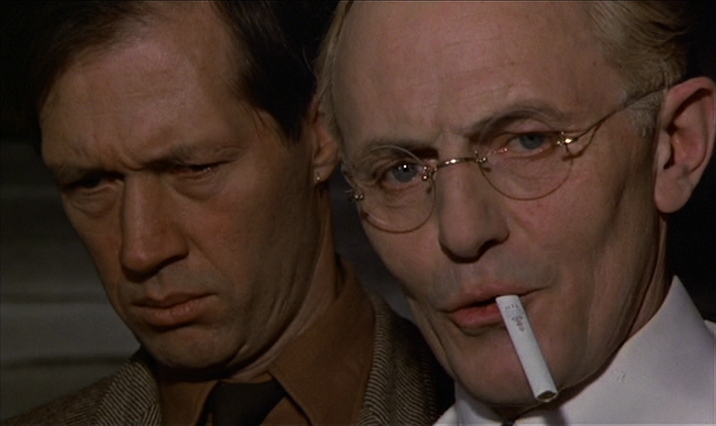
It isn’t that there is any particular weakness in the construction of this cold-blooded metaphor, but within the context of Ingmar Bergman’s broader filmography one might be struck by how relatively simple it is. The Serpent’s Egg is his second film to be written partially in English after The Touch, and the first to be produced within the confines of Hollywood, despite being shot in Germany. The creative constraints he felt working under these conditions are evident. Gone are the abstract, psychological examinations of human vulnerability and isolation, and in their place are surface-level renderings of both in the romance between alcoholic American immigrant, Abel, and his German sister-in-law, Manuela.
Even in her supporting role as a grieving widow and boisterous cabaret performer, Liv Ullmann often comes out looking better than her co-star David Carradine, continuing to prove her versatility as a woman driven to survive in the squalid pits of modern society. It is largely thanks to her that the relationship between Manuela and Abel is given any depth beyond their shared mourning of his brother and her husband, Max.


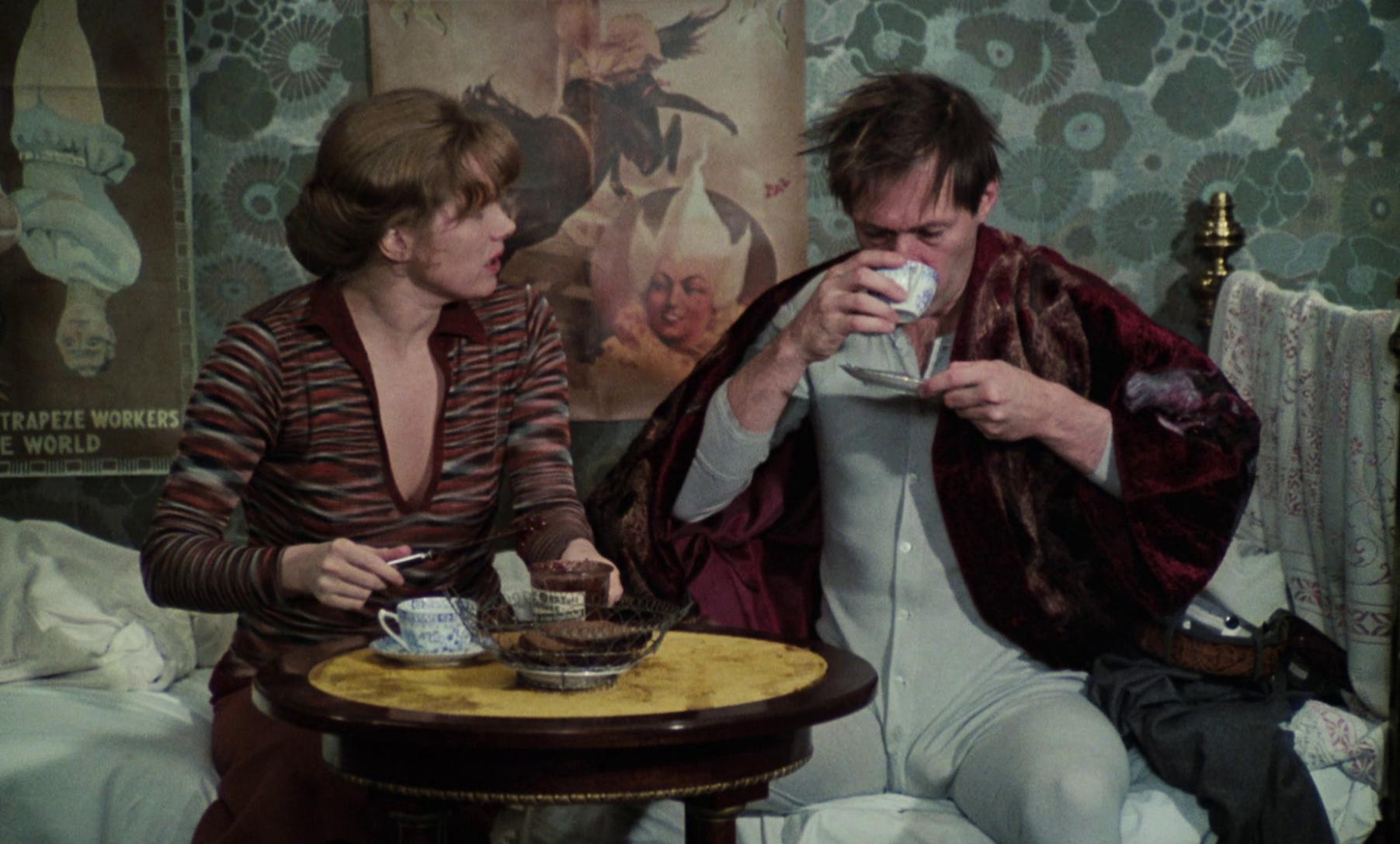
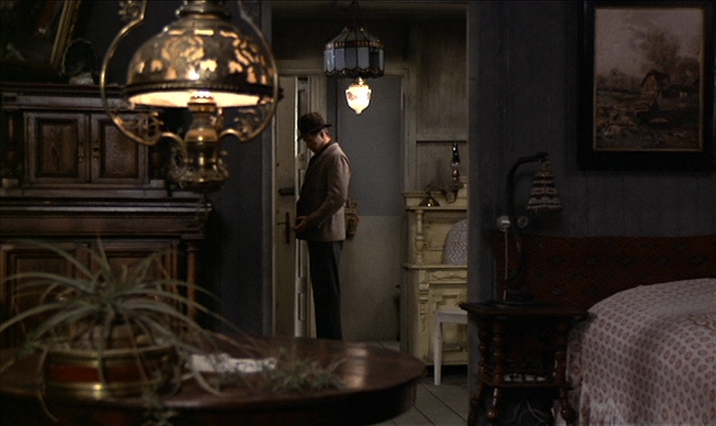
What The Serpent’s Egg lacks in a compelling narrative though is partially compensated for in Bergman’s thorough world building of 1920s Germany, raising his camera in crane shots above low-lit urban streets and sinking his characters into shabby, cluttered interiors. With the Russian Revolution just a few years in the past and a fear of Bolsheviks hanging over the people of Berlin too, cultural tensions permeate every corner of society, occasionally bursting into outright violence as soldiers overrun the brothel where Manuela works and kill its owner. Meanwhile, the starving masses are driven to cutting up dead horses on the street for meat when the food shops close, though perhaps even more chilling is the image of its bare skeleton a few scenes later, with passers-by accepting it as just another part of the urban scenery.
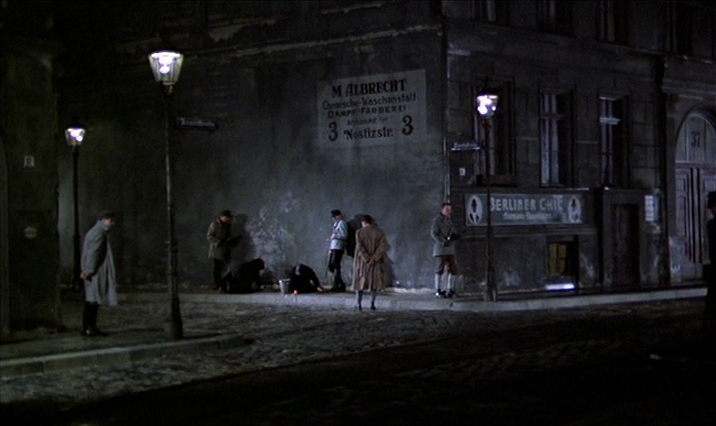
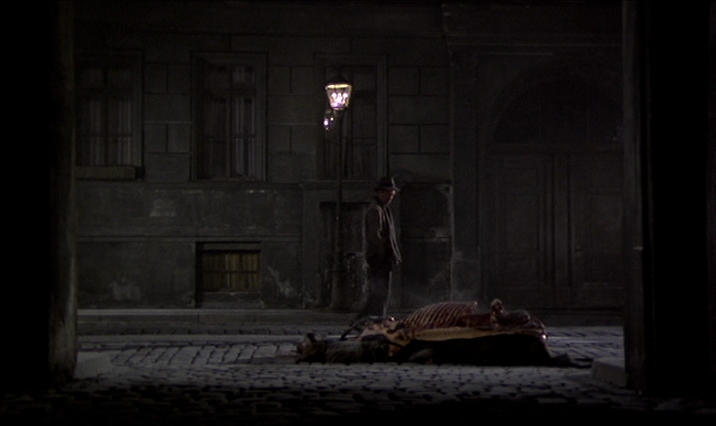
For those who are merely looking to survive, dark mysteries that swirl in the background of everyday life are the least of their concern, though Bergman never quite loses track of their danger. While Abel is investigating his brother’s seemingly random suicide, dead bodies are simultaneously appearing on nearby street corners, and he quickly comes under suspicion by antisemitic authorities. As conspiracies come to light, the formal thread connecting both subplots is revealed to be much tighter than we initially suspected, tying them all back to the same shady hospital. After all, it is no coincidence that wealthy doctors are able to conduct their exploitative human experiments in such dire circumstances, psychologically driving one mother to kill her baby out of sheer frustration and locking a man in total isolation for a week. The incentives are glaringly simple.
“People will do anything for a little money and a square meal.”
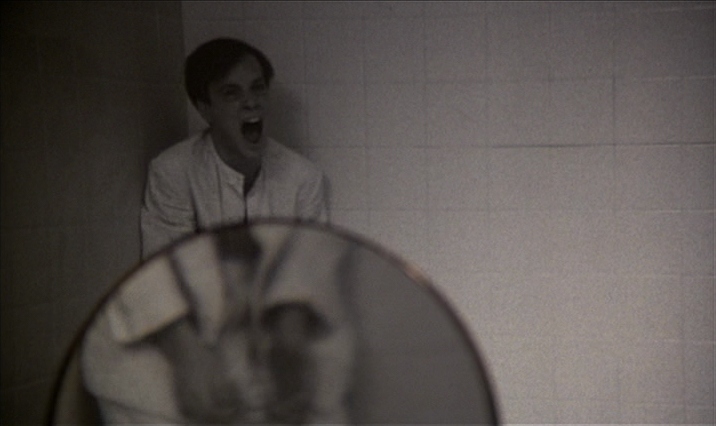
Suddenly, the future of Germany looks more desolate than ever. If this is where its power over the masses starts, with common people voluntarily submitting their bodies to the ruling elite, then there is no holding back Hitler’s manipulation of their insecurity. It is clear that Bergman has far greater interest in this conspiracy than in its direct impact on his characters, as the moment it is resolved he brings the film to an abrupt close with nothing but onscreen text filling in the rest of Abel’s story. Even as The Serpent’s Egg marks a strange departure from Bergman’s usual screenwriting strengths though, the menacing tension it builds in its bleak political statement can’t be denied, witnessing the birth of fascism amid dystopian landscapes of fear, starvation, and corruption.
The Serpent’s Egg is not currently streaming in Australia.
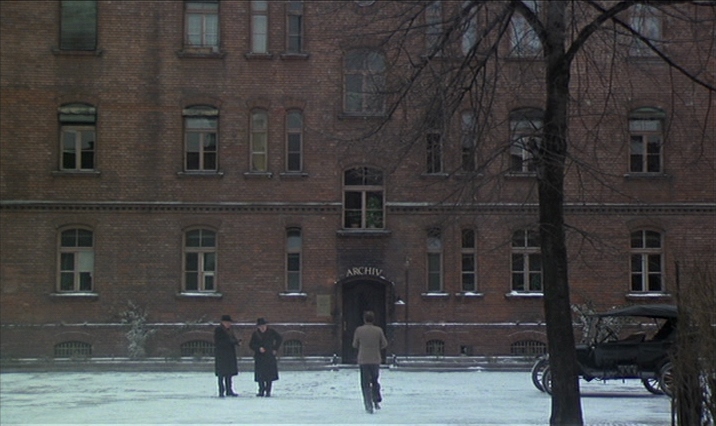

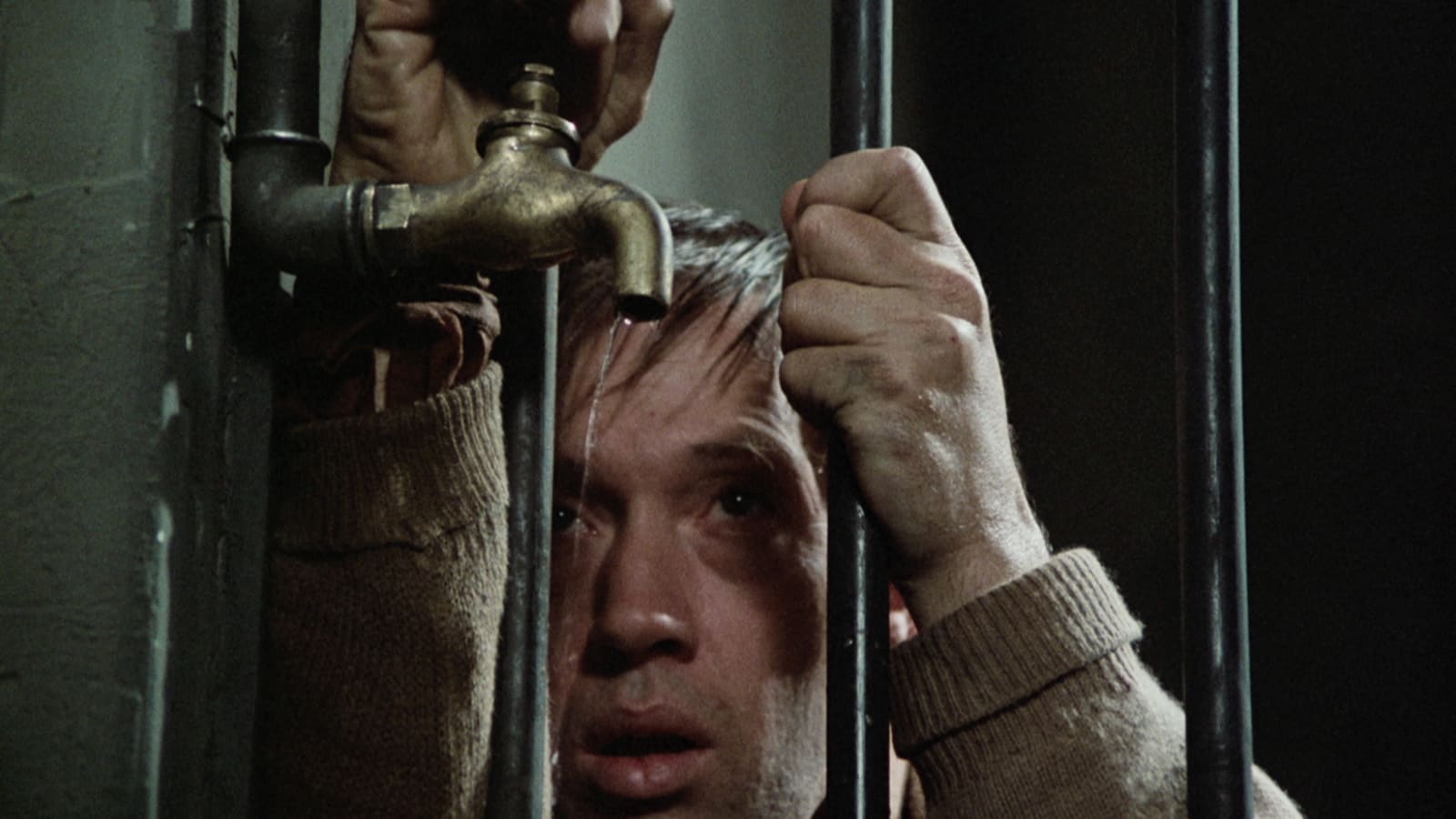
Pingback: Ingmar Bergman: Faces of Faith and Doubt – Scene by Green